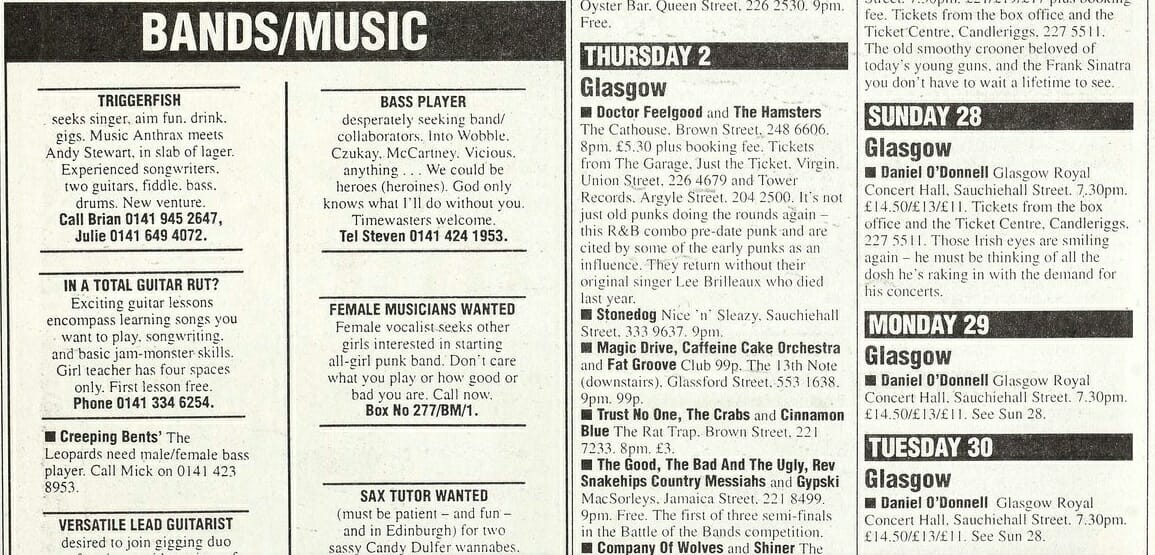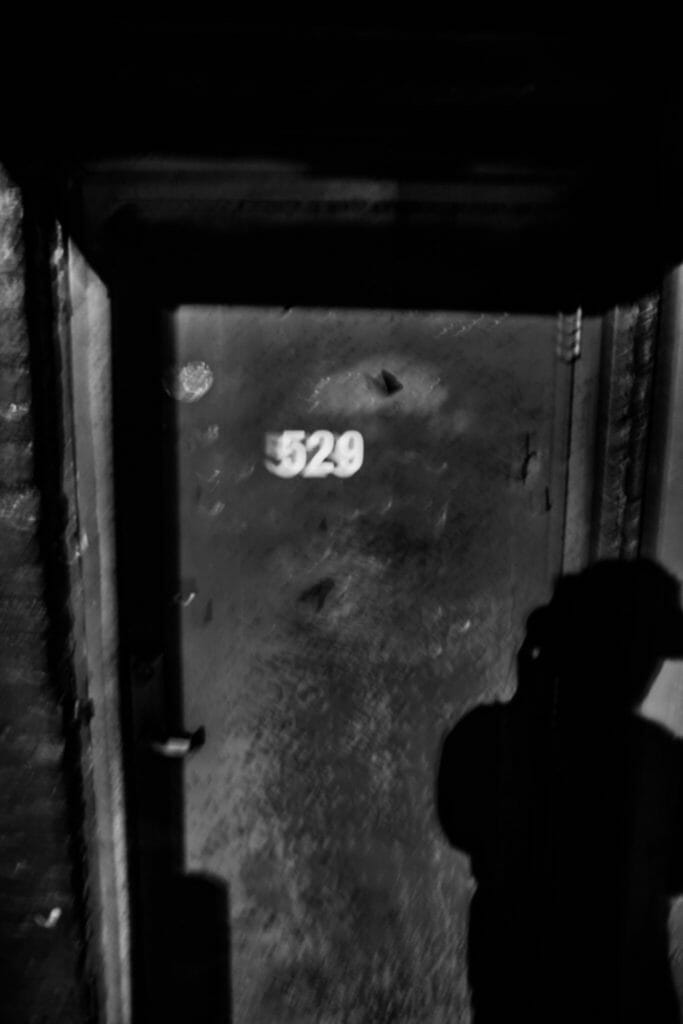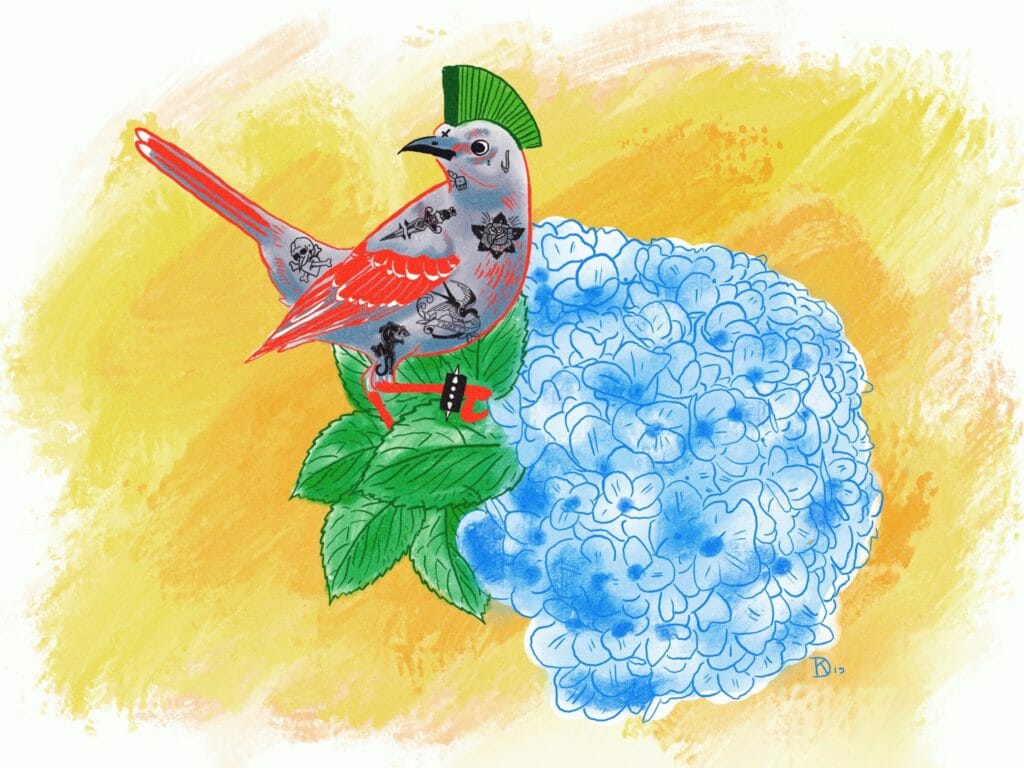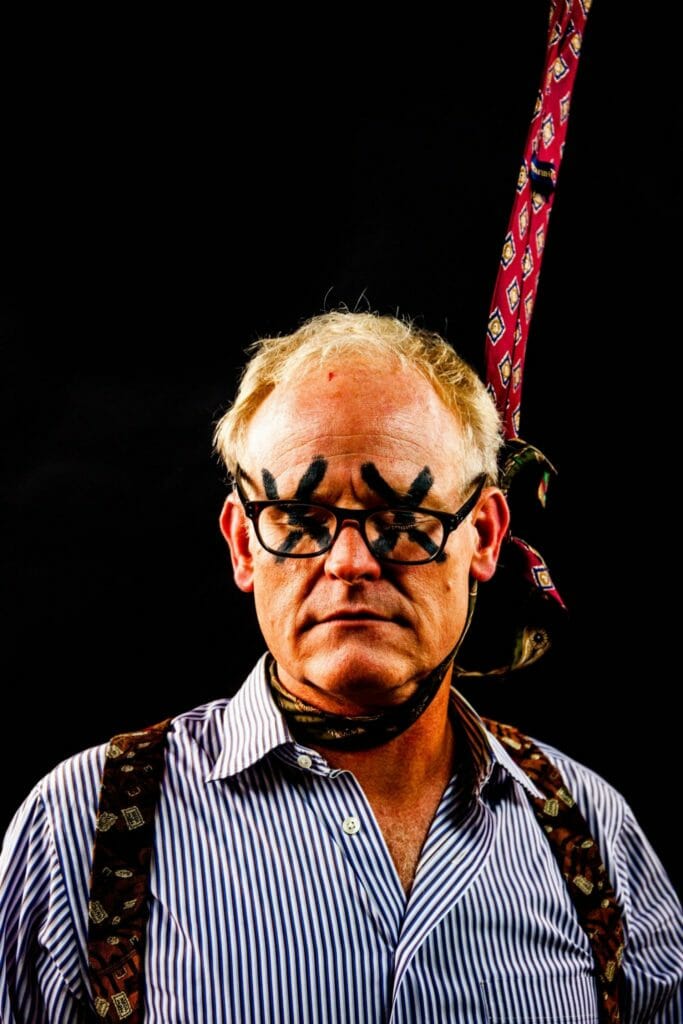I’ve always felt the coolest women in bands perform outside the traditional normative standards of beauty. To be clear, when I mention “bands,” I’m referring to a holistic four- or five-piece musical group in which all members contribute equally. I’m not referring to a frontwoman and her backing band, like Patti Smith fronted the Patti Smith Group, or Chrissy Hynde’s frontwoman role with the Pretenders. This article is one woman’s perspective of playing music in the total boys’ club of an alt-indie music scene, with no aspiration to be a frontwoman or any object of special attention of any kind. This is someone who just wants to be punk and play some shit with other people.
Throughout different genres of music, many examples come to mind when I think of women who embody a strong contributing role within a band of musicians while not leaning on their sexual identity for attention and support. Moe Tucker of the Velvet Underground is a great example. One critic noted that it is with her unconventional, minimalist style of drumming that “the punk notion of the beat work begins.” Her androgenous appearance is legendary. She claims she never experienced difficulties due to sexism during her time in the Velvets, and I can’t help but wonder if her musical performance in the band would have received such acclaim had she been more feminine in appearance. Kim Deal (ex-Pixies) and Kim Gordon (ex-Sonic Youth) also offer welcomed examples of women being active, contributing members of a band. They play their instruments masterfully, contribute creatively, and neither succumb to the traditional standard of feminine beauty or sexuality.
So why then, with so many of us embracing our feminine empowerment, have so many women I know automatically looked to some dude in a “band” to “teach” them to “play bass”? As if he and he alone holds the key to the gates of musical creativity. Music by definition is a creative pursuit, meaning if you want to make a noise plucking a string or hitting a drum, the key is in your own hand to begin with. Why is it that we find any amount of validation in the approval of a man (or anyone else) to give us permission to play in a band or to make us feel that we are good enough to be creative in this way?
Why is it that playing music of any kind is so male-dominated to begin with?
Why is it that playing music of any kind is so male-dominated to begin with? I really don’t get it. You don’t need any large amount of physical strength to play guitar, so it’s not as if strength or height advantage has any merit here. And even if size and strength did matter (they don’t), guitars come in different sizes anyway. It doesn’t seem to me that there is any greater technical advantage to being male when it comes to playing instruments, writing music, performing live, or selling records. I suppose the tired and obvious answer to this question sounds something like “the patriarchy” … But so many of us in these tiny creative bubbles know all about that and claim to resist these systemic conditionings.
I vividly remember an early high school conversation I had with my friends about what a great band the Pixies were and a friend pointing out, “Have you seen them, though? They’re so ugly!” It was such a shocker for everyone at the time—myself included—that the Pixies made it as far as they did without being conventionally attractive. I suppose it’s debatable as to whether these examples of women in music are actually free from this story’s criticism of the exploitation of the Feminine to sell a band. You could argue that the Velvets, the Pixies, and Sonic Youth all benefited greatly from the presence of the Feminine. But, was their femininity exploited? Or was it owned by the women themselves?
The talent and raw power of these women certainly contributed to my purchasing their records while I was growing up. For me, their beauty was found in their charisma; something magnetic about the confidence with which they played their music and the way they carried themselves within these male-dominated bands. They showed up as more than just ornamentation. They paved the way for girls like me to feel free and empowered to create music on my own and to feel that in addition to playing an instrument, my individual creativity could be (and was) an asset to any collaboration. That I shouldn’t need to stress selling out my prettiness or sexuality or rely on my femininity (or lack thereof) to secure my place in any project. The women in these bands broke the mold of the archetype that I will refer to here and now as the Tambourine Girl.
The Tambourine Girl is more so there to be seen, rather than heard. She stands obediently in her place, sexualized and ready to back up the lead. Her placement is, more or less, a marketing move. She’s pretty, she’s shiny. More often than not, she’s styled to be a little tousled, a little troubled… every bit the attractive adornment needed to sell the band. This position leaves little room for any creative contribution from the TG herself. Even a woman playing more complex instrumentation than the tambourine, say a bassist or a keyboardist, can still be placed in such a position for no other reason than to advertise that this band is more than just a circle jerk.
This is in no way intended to discount the significance of the tambourine itself. As an ancient instrument, the tambourine has been played (most often by women) during rituals, religious ceremonies, and folk celebrations. It was played in ancient Mesopotamia, Greece, Rome, and was well-known to the Ancient Egyptians, being primarily played by female temple dancers. It is even mentioned in the Old Testament as an instrument of celebration. Crusaders took the instrument to Europe in the 13th century and by the Middle Ages, the tambourine was a commonplace item across the continent. Its importance as a folk instrument in France, Spain, and southern Italy has never diminished. Traveling musicians and entertainers used it, with women in these troupes using the tambourine to entice onlookers to contribute a few coins to the troupe.
Even a woman playing more complex instrumentation than the tambourine, say a bassist or a keyboardist, can still be placed in such a position for no other reason than to advertise that this band is more than just a circle jerk.
Sound familiar? It’s interesting to me that across time, a relationship exists between the primal attraction to the rhythm and bells of this simple instrument and the alluring dance of the Feminine. I can easily see this entrancing energy current being created in an ancient temple ritual or Romani folk dance. Trace the instrument through the centuries and you arrive here, at your local tavern or venue, finding the tambourine embodying the same general structure of its ancient origin, exuding the same celebratory and sacred allure that is has for centuries.
The question presented in this article is of its exploitation, specifically concerning the emphasis on the Feminine. Who is exploiting it? Who receives the coin? Does she? And at what point is this dance no longer sacred?
I’m not denying that having a woman in the band is a useful trick for adding more visual interest to the ensemble, especially if the men on their own cannot exude the sexual allure needed to draw a crowd (though I’d like to acknowledge here and now that plenty of men have the ability to tap into the Feminine and draw us all right to the front row). What I find troubling is that when a woman is on stage, the typical narrative is that not only is she pretty and sexy, but she’s impressive. Especially if she can actually play her instrument!
“Did you see that band with the chick drummer?” Why does it matter that the drummer is a girl? To lavish attention and praise on a woman having the “balls” to play a traditionally male instrument is akin to celebrate a dog who can ride a skateboard. “Oh, wow! It does human tricks!” (On second thought, this is a poor example, because it really is impressive when a dog rides a skateboard.) The comparison remains though, in the notion that a woman should be considered a special entertainment when playing an instrument that is traditionally played by men.
I suppose it’s okay to appreciate her bravery and general badassery for taking on a traditionally male role… but WHY? Especially in 2019! I get that throughout history there have been sacred, ceremonially gender-assigned instruments, like the fucking didgeridoo. But honestly, the instrumental assembly of the modern band is anything but fucking sacred. It’s literally a free-for-all at this point. So why are we still acting like it matters as to who plays what? In alt-indie rock and every other genre? Even if the reaction to the women is “complimentary”? As a woman who is a musician, I’ve often wondered if the men who have invited me to play over the years actually appreciated my musicianship or were just impressed that I, as a woman, played music at all.
But the real question I’m presenting here is: do we really understand what “exploitation” and “femininity” mean? Do we understand this concept well enough to recognize when they play out in our own lives and creative communities? Do we recognize the basis of this capitalist and sexist conditioning that forces us and our musically inclined peers to try and “make it” in a band at all? Thus facilitating a subculture that once caused a male friend to, without thinking, tell me he invited a girl to join his band because she was “usable in that way” (I think he meant skinny and able to hold a tambourine). The sad thing about him making this statement was that this girl is a legitimately talented multi-instrumentalist and vocalist. But all that mattered to the dude was the “look” of the band he was trying to put together—and ultimately sell.
Don’t just hijack a person of talent and pretend to be her bandmate, all the while hoping her bangs will sell your EP.
Which brings me to this point: we all know how capitalism works. We all know that true art for art’s sake is probably dead and a lot of us are trying to make work for money, validation, fame… whatever. I certainly don’t hold this against anyone. This system is a part of the world we were born into, and even though the end is nigh, for the moment at least we have the privilege to even try to make a living as an artist, especially if you can get a good price for your work. And we all know that sex sells. Unfortunately, this is true now more than ever. But there is a difference between cognitively understanding something and cathartically processing it (and maybe actually doing something about it). I’m certainly not suggesting anyone stop using sex and aesthetic to make a buck, but if you’re in the business of recruiting others to support you in this endeavor, I make a motion for transparency. If you want a person to play the role of the archetypal Tambourine Girl, be open and honest about it. Don’t just hijack a person of talent and pretend to be her bandmate, all the while hoping her bangs will sell your EP.
And as a final message to my sisters out there who want to play music: just because he’s a guy in a band and he said he’d “teach you to play bass,” doesn’t mean he’s going to teach you. (It also doesn’t mean he isn’t going to try to fuck you or try to get you to play some irrelevant side instrument at his next show.)
But most importantly, I reject the notion that you even need to be taught anything by the band guy at all. If you want to be the Tambourine Girl, great! Sincerely, more power to you. There’s nothing wrong with using your own sexuality and femininity to express yourself! But there are also no rules as to how to create music. Anyone who tells you otherwise is a self-inflated dick. You can do whatever you want, however you want. Especially when making art in a dying world. You don’t have to sell yourself or prove yourself, and you have zero obligation to stroke anybody’s ego. If you want to learn to play bass or any other instrument, just do it like the band guy himself probably did… lock yourself in a bedroom for a couple of weeks and YouTube that shit.




